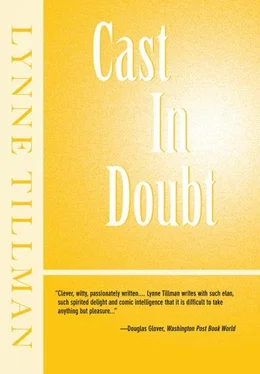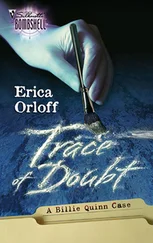This is why I don’t believe they slept together that night, although I could be wrong. Aggressive behavior is often a prelude to sexual encounters. It has been so in my life, in any case. Some insects bite each other’s heads off when mating. Rémy de Gourmont, in that curious book The Physiology of Love , produced many remarkable examples of sexual love between animals and between insects that if enacted between human beings…well, perhaps they are enacted between human beings. I recall some bizarre incidents in the sexual life of bees; de Gourmont adored queen bees. About the males, the drones, his language was excessive and damning. Useless, parasitic, he called them. I’m sure Gwen may have used the very same language about some of her beaux-drones.
Isn’t it odd that that particular anger, or rage or life force, libido, courses with such virulence, with such peculiar physicality, and is activated and erupts within one’s body like a volcano, and that its lava — molten, heedless lust — can be aroused by the most unpleasant people? One often feels such hatred and disgust for one’s partner of the night before. He may have been attractive then, fierce, pleasant, indolently sexy, whatever, and in the morning those very same characteristics appear loathsome. Sex itself can be so unpleasant. Sometimes one experiences such terrifying feelings. A good lover isn’t necessarily in himself magnificent; it is that he makes one feel at least proficient or unencumbered by restraint. Oh, for those precious nights!
If she hasn’t already, Gwen will tire of John, another pretty white boy, a drone, useless. She will tire of him soon. I have faith in Gwen. In truth, she desires a true connection, but I–I need only have a muse. An amusement.
I can’t bring myself to work on the Stan Green book today though it is due soon. I shall be just a little late. My publisher knows that I always come through. Even my agent once telephoned from New York and said, They know you’ll come through, Horace, you’re a trouper. A trouper. When she said that, Gloria is her name, I imagined I was a fusty vaudevillian meant to be brought out on stage during a lull between better acts. I am wearing too much rouge. I don’t want to go on — yet I have been indoctrinated to believe I must. The show must go on, Horace! This tired exhortation rings in my ears as I wait in the wings, or in the seen-better-days dressing room. Fussily, I walk out on stage and stand before a hostile audience. I bow, clear my throat, and steal the show.
For the record, I do recall another incident. Though whether it happened here or in the restaurant, I haven’t the foggiest: John stole the show rather uncharacteristically. With some elaboration he spun a tale. As he is some years older than Helen, he had already spent time bumming around Europe, as he put it. He bummed around Amsterdam. This was a couple of years ago. Timothy Leary, a sixties character whom Helen would laugh at and whom Gwen knows, of course, had just been captured in Afghanistan. According to John — I did not follow Leary’s travails, nor have I ever tried LSD, not eager to simulate madness, unless assured of transcendent visions! — Leary had been living under state protection in Austria. For the price of appearing on television to denounce drug-taking, he could escape the U.S. government, which was eager to imprison him. He could have lived happily ever after in Vienna, if people do live happily there. But he was restless, or his lover was. It seems that Leary’s wife or lover encouraged him to adventure to the East and desert his safe house, Austria, which he did. They were immediately caught, busted in the airport, and deported to the States, where Leary was imprisoned.
This is the point at which John’s story became extremely interesting to me. A man named Dennis entered the scene. He appeared in Amsterdam just after Leary’s capture in the Afghan airport. Dennis said he had been traveling with Leary and the woman — Joanna, I think her name was — but he himself somehow escaped Interpol, and came to Amsterdam to broadcast the truth of Leary’s capture in Afghanistan and his previous life in Algeria and so on. In fact, John says, Dennis was carrying a Leary manuscript, which he claimed would never be published in the States, as it did indeed tell the real story in Algeria — Leary’s wife Rosemary’s adventure with Kathleen Cleaver, for one thing. Eldridge was also there, and he was involved with an Algerian girl, much against the prevailing customs and Muslim religion. Rosemary was wretched, as was Kathleen, it seems. I would be too, I should imagine, in such a situation, and with those men, neither of whom do I find appealing. But no matter.
Dennis ingratiated himself to the Dutch artistic underground community, such as it was, along with his pallid, untalkative wife and their child. They seem to have resembled typical hippies. Then, shortly after a mimeographed edition of Leary’s book surfaced in Amsterdam, courtesy of a member of the underground who felt obliged to make it available, the American edition appeared, with wholesale elisions from the Amsterdam manuscript, but appear it did. And Dennis, who said it would never see print, himself disappeared, simply vanished. But, said John, who received one letter from him, written from California, where Leary was in jail, Dennis surfaced, finally. He was lately found murdered, execution-style, in a Spanish hotel room. He’d been working for the CIA, a lowly agent, but an agent nonetheless. It was likely that he had turned Leary in, more than likely, which explained why Dennis himself had escaped Interpol. According to John, Joanna too was CIA, but captured with Leary so as to give the operation the ring of truth. Leary was not a good judge of character; LSD had perhaps made him oblivious to the possibility of deceit. Acid, John told me, makes one love everyone and feel at one with the universe. What an idea! Universal love certainly did not stand Leary well.
The Dennis story endeared John to me as much as his beauty already had. There is nothing more appealing than beauty and intrigue. Can something be beautiful without mystery? Beauty would be incomplete — ugly — without it, would it not? Mother suspected that I turned everything into drama. I am drawn to the mystery and inconclusiveness of life, which is dramatic; life is allowed to hold unwieldy surprises or at least uncertainty. Yet I demand a kind of perfection, which must be definitive — perfection is never ambiguous or incomplete. Not finding it, I seek to study imperfections as if they would reveal clues to a secret existence, one living in tandem with or parallel to ordinary existence, a life that would be complete and conclusive. Perhaps this makes no sense, but surely it explains some of my interest in crime and criminals.
I don’t necessarily want always to make perfect sense; but I do want to find reason and motives. Life is crazy, Smitty more than once insisted to me; and to her, I think, the pursuit of sense, of reason, was itself nonsensical, irrational. I argued points like these many times with her, yet in some ways I had to concede she was right. But she was — is — so young. I am running ahead of myself. And running ahead of Smitty. My Smitty.
There was a grocer in our town named Smitty, and everyone loved him. He was a man I visited with my mother, at his store, two times a week, let’s say, a man so jovial and friendly, he was above and beyond suspicion. But one day it was discovered that he had a dark side. I don’t even remember precisely what his crime was — which is odd — but at the time, I was only seven, it shocked me into realizing that life wasn’t what my mother and father, when he spoke to me at all, represented it to be. Life was filled not just with incivility and occasional outbursts and rudeness, but with the terrible unexpected, with bad people, even evil ones, and one could never trust appearances. Still, one learned one must, compelled to even by the difficulty of the task, and one kept up those appearances. One had to keep up appearances for just these contradictory reasons.
Читать дальше












